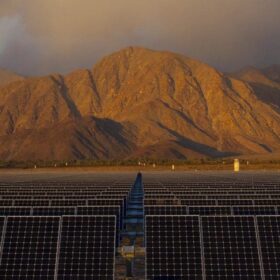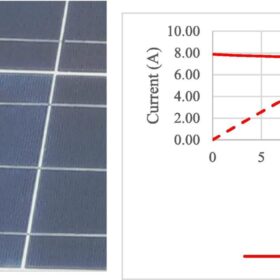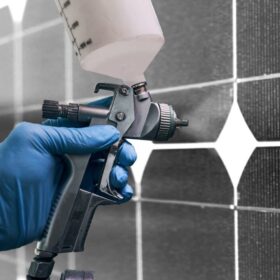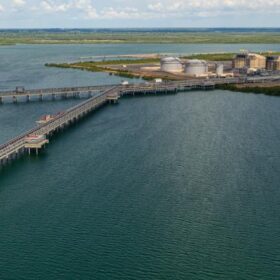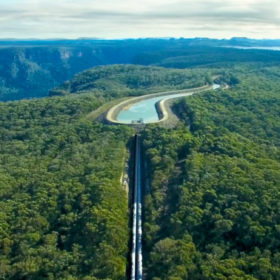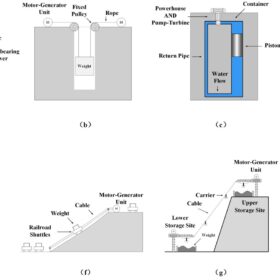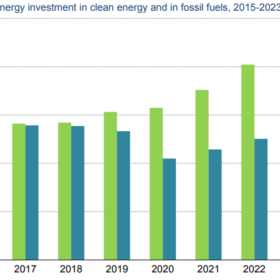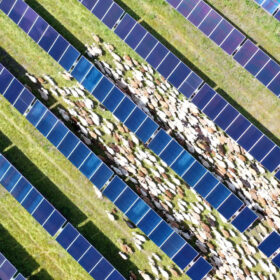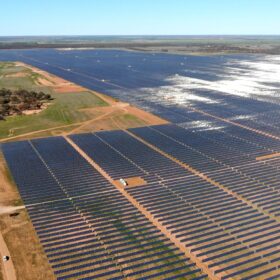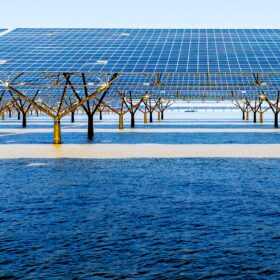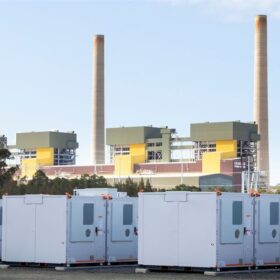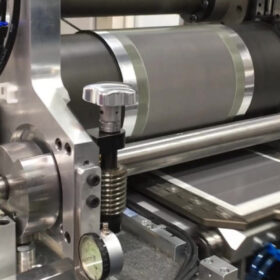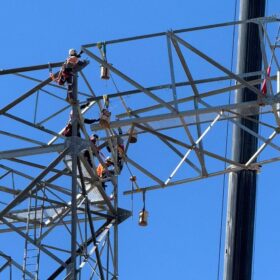Solar-plus-storage microgrids minimise power shutoffs during wildfires
Lawrence Berkeley National Laboratory researchers have shown that microgrids equipped with solar-plus-storage systems can maintain an average levelised cost of energy (LCOE) below USD 0.30/kWh and limit annual public safety power shutoffs to 2% to 3% of annual energy demand.
Research shows polycrystalline panels from 11 different producers degrade more than warranty rate
A research group in Ghana has conducted a series of tests to assess the performance of polycrystalline solar modules in PV systems operating in their home country for at least 5 years. They found that the vast majority of the panels may ‘fail’ before 20 years in operation under outdoor conditions.
Nanovue targets U.S. with self-cleaning solution for solar panels
ASX-listed nanotechnology company Nanoveu will look to expand into the United States market with the establishment of a demonstration site for its anti-soiling coating for solar glass following trial deployments in the Philippines and Malaysia.
Japanese gas giant to lead Darwin ‘clean’ hydrogen study
Japanese oil and gas giant Inpex has been jointly awarded a $1 million (USD 670,000) grant by the Australian government to conduct a feasibility study into the growth potential of a ‘clean’ hydrogen market in the Northern Territory.
US researchers beam solar from space
Caltech’s space solar program began in 2011 when philanthropist Donald Bren donated more than USD 100 million ($150 million) in support of the project. In the first demonstration of solar energy beamed to earth, his vision is now becoming reality.
Researchers identify 14 feasible pumped hydro sites in North Queensland
Griffith University researchers have developed a tool to identify sites for pumped hydro storage projects. Using North Queensland to demonstrate the tool, the researchers identified 14 potentially feasible sites in the region where the LCOE ranged between $0.04/kWh – $0.27/kWh.
Hybridising gravity energy storage with batteries, supercapacitors
Developed by Chinese researchers, the novel hybrid storage technology may achieve an efficiency of over 80% and be applied in distribution and transmission grids. The proposed combination is reportedly able to offer the advantages of gravity energy storage and power-based storage systems in a single solution.
Using electric water heaters to store renewable energy could do the work of 2 million home batteries
Australia’s energy transition is well under way. Some 3 million households have rooftop solar and sales of medium-sized electric cars are surging. But as we work towards fully electric households powered by renewable energy, have we overlooked a key enabling technology, the humble electric water heater?
Global investment in clean energy nearly doubles that of fossil fuels
For every dollar invested in fossil fuels, 1.7 dollars are invested in clean technologies. Five years ago, it was a one-to-one ratio, said the International Energy Agency.
Sheep grazing team to reduce solar mowing costs by more than 44%
About 70 Katahdin breed sheep were dropped off at the Oberlin College campus in Ohio last week. They will graze through mid-June, stomping grass and weeding the solar field in a move aimed at reducing operations and maintenance costs.
